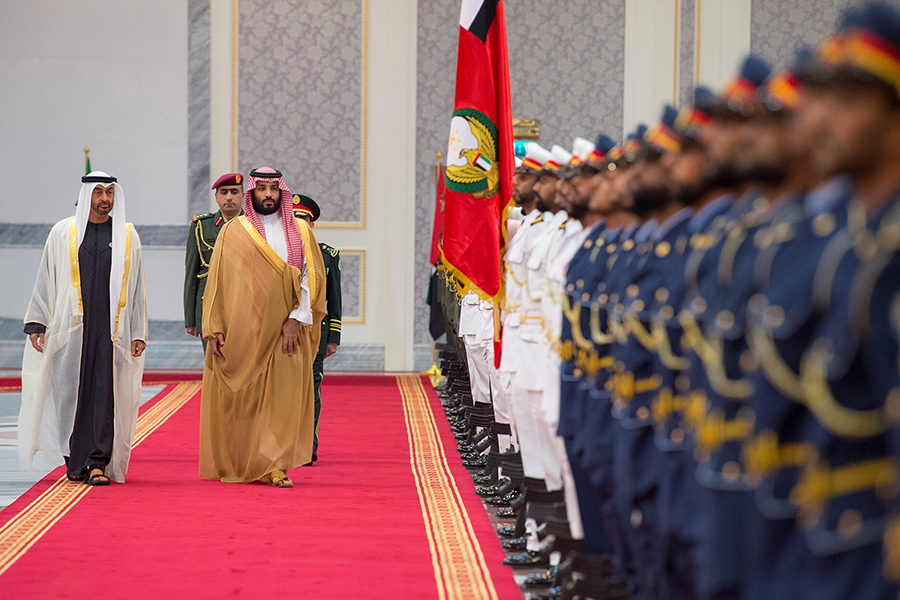Re: Temporarily So Called Turkey and the World: Perceptions, Relations...
American Chronicle, CA
Dec 8 2007
Deterioration of the Turkish - Israeli relationship
Dr. Muhammad Shamsaddin Megalommatis
December 7, 2007
A few days after the terrible Isparta airplane crash in SW Turkey
that bears witness to undeclared war against Turkey from the part of
the US - UK - French political establishments that is controlled by
the Apostate Freemasonic Lodge (The Isparta Crime: Undeclared War
against Turkey -
http://www.americanchronicle.com/art...rticleID=44840),
we get a clearer picture of the escalation that advances rapidly and
is meant to trigger a dramatic change throughout Eastern
Mediterranean and the Middle East in the years ahead.
Last Wednesday, after a five-hour-long meeting of the Under
Secretariat for the Defense Industry's (SSM) Executive Committee, the
top decision-making organ for arms purchases, it was announced, among
other critical decisions, that Turkey eliminated Israel from the
Göktürk satellite project. Chief of General Staff Gen. Yaşar
Büyükanıt, Premier Recep Tayyip Erdoğan, and Defense Minister Vecdi
Gönül attended the Undersecretariat for the Defense Industry
Executive Committee's meeting.
According details given by Defense Minister Vecdi Gönül, Turkey
decided to eliminate Israel Aerospace Industries (IAI) from the
Göktürk electro-optical satellite project, while announcing that it
will conduct negotiations with both Sikorsky of the US and Italy's
Agusta Westland for the procurement of approximately 80 multi-purpose
helicopters worth around $1.5 billion.
The rest of the decisions testify to the fever of military
preparations that reflect the newly concealed alliance between the
Turkish secular military establishment and the Islamist government
and president of Turkey.
As it was announced, Turkey will also locally develop modern infantry
rifles and automatic rifles, and this will happen for the first time.
Among other ambitious projects that the SSM Executive Committee
decided to either launch or start contract negotiations on are the
following:
* Negotiations will continue with the Italian Tele Spazio, Germany's
Ohb-Systems, and Britain's EADS Astrium, as regards the acquisition
of an electro-optical satellite project. This is the $250 million
project from which Israel's IAI has been eliminated. The plausible
reasons and explanations given are not very convincing; it was stated
that the company was dropped due to some Israeli conditions,
involving the non-usage of military satellites over its airspace;
however, this is nothing new, and the Israeli conditions had been
known beforehand.
* Instead of a multipurpose helicopter project that was finally
cancelled, Turkey will conduct talks with the US's Sikorsky and
Italian Agusta Westland for the procurement of over 80 helicopters
both for the Turkish Armed Forces. It was made clear that the
companies will increase their chances, if they agree on building
helicopter platforms in Turkey in order to boost the Turkish defense
industry.
* In the acquisition of reconnaissance systems to be installed at the
Aksaz Naval Base near Marmaris, Aselsan will be the main contractor
and Norwegian Kongsberg will be the subcontractor. The project is
worth ca. 50 million euros.
* Turkey will purchase a total of 16 Norwegian Kongsberg-made Penguin
missiles worth approximately US $40 million.
* Modern infantry rifles and automatic rifles will be developed
locally in two years' time, as we already stated.
* Four frigates code named TF-2000 will be produced locally with a
project cost of $1.6 billion.
* Even more indicative for the Turkish arsenal's complete
re-orientation and great diversification is the decision to cooperate
with Russia in the key defense sector of helicopters. More precisely,
eighteen Mi-17 Russian-made helicopters will be overhauled in Turkey,
and the company that will do the depot-level maintenance work on the
helicopters will also be tasked to secure the return of four Mi-17
helicopters that had been previously sent to Russia.
(http://www.todayszaman.com/tzweb/det...ay&link=128765).
The decisions bring Turkey one step closer to the great continental
alliance under formation, namely Russia, China, Kazakhstan,
Uzbekistan and Iran. With the remarkable preparatory work made
towards the formation of a Union of Turkic states, one understands
that the Turkish - Chinese - Russian rapprochement will be completed
with the Turkish influence expanding throughout Central Asia. This
seems to have become indispensable in order to prevent any undesired
in Moscow and Beijing rise of Islamic Extremism in the area.
In other words, while allying with Iran, the three vast Asiatic
countries, Russia, China and Kazakhstan, need Turkey's cooperation in
reducing extremism either within the Muslim states (Turkmenistan,
Uzbekistan, Kirghizia, Tajikistan and Azerbaijan) of Caucasus and
Central Asia or among the Muslim inhabitants of Russia, China and
Kazakhstan. Agreeing on Turkish expansion is the Russian - Chinese
method of gradually pulling Turkey out of NATO.
In the light of the aforementioned, one can easily conclude that the
tripartite theater between the presidents of Turkey, Israel and
Palestine reflected only another role that Turkey will play in the
Middle East in the years ahead; that of a main contributor to the
demise of Israel and Saudi Arabia, the main US allies in the Middle
East.
At this moment, and due to multifaceted biases from the part of the
European, American and Israeli establishment, there is practically
speaking no pro-Western force left in Turkey. It would look odd, if
the situation does not become clearer soon. A pro-Armenian vote in
the Congress, another EU obstacle, and further evidence for US -
Israeli support to PKK will trigger an immediate and virulent Turkish
reaction that will cause severe security problems to all, NATO,
Europe and Israel.
Even worse for the West, the Turkish military establishment may soon
conclude that no attack against Iran can be possibly accommodated
with regional security as perceived in Ankara. On that day will be
issued a Death Warranty for the State of Israel, and for the dramatic
events that will follow the only responsible will be the Apostate
Freemasonic Lodge that seems to have entered in an orbit of ultimate
self-destruction.
Note
Picture: An Old Route for the Future
American Chronicle, CA
Dec 8 2007
Deterioration of the Turkish - Israeli relationship
Dr. Muhammad Shamsaddin Megalommatis
December 7, 2007
A few days after the terrible Isparta airplane crash in SW Turkey
that bears witness to undeclared war against Turkey from the part of
the US - UK - French political establishments that is controlled by
the Apostate Freemasonic Lodge (The Isparta Crime: Undeclared War
against Turkey -
http://www.americanchronicle.com/art...rticleID=44840),
we get a clearer picture of the escalation that advances rapidly and
is meant to trigger a dramatic change throughout Eastern
Mediterranean and the Middle East in the years ahead.
Last Wednesday, after a five-hour-long meeting of the Under
Secretariat for the Defense Industry's (SSM) Executive Committee, the
top decision-making organ for arms purchases, it was announced, among
other critical decisions, that Turkey eliminated Israel from the
Göktürk satellite project. Chief of General Staff Gen. Yaşar
Büyükanıt, Premier Recep Tayyip Erdoğan, and Defense Minister Vecdi
Gönül attended the Undersecretariat for the Defense Industry
Executive Committee's meeting.
According details given by Defense Minister Vecdi Gönül, Turkey
decided to eliminate Israel Aerospace Industries (IAI) from the
Göktürk electro-optical satellite project, while announcing that it
will conduct negotiations with both Sikorsky of the US and Italy's
Agusta Westland for the procurement of approximately 80 multi-purpose
helicopters worth around $1.5 billion.
The rest of the decisions testify to the fever of military
preparations that reflect the newly concealed alliance between the
Turkish secular military establishment and the Islamist government
and president of Turkey.
As it was announced, Turkey will also locally develop modern infantry
rifles and automatic rifles, and this will happen for the first time.
Among other ambitious projects that the SSM Executive Committee
decided to either launch or start contract negotiations on are the
following:
* Negotiations will continue with the Italian Tele Spazio, Germany's
Ohb-Systems, and Britain's EADS Astrium, as regards the acquisition
of an electro-optical satellite project. This is the $250 million
project from which Israel's IAI has been eliminated. The plausible
reasons and explanations given are not very convincing; it was stated
that the company was dropped due to some Israeli conditions,
involving the non-usage of military satellites over its airspace;
however, this is nothing new, and the Israeli conditions had been
known beforehand.
* Instead of a multipurpose helicopter project that was finally
cancelled, Turkey will conduct talks with the US's Sikorsky and
Italian Agusta Westland for the procurement of over 80 helicopters
both for the Turkish Armed Forces. It was made clear that the
companies will increase their chances, if they agree on building
helicopter platforms in Turkey in order to boost the Turkish defense
industry.
* In the acquisition of reconnaissance systems to be installed at the
Aksaz Naval Base near Marmaris, Aselsan will be the main contractor
and Norwegian Kongsberg will be the subcontractor. The project is
worth ca. 50 million euros.
* Turkey will purchase a total of 16 Norwegian Kongsberg-made Penguin
missiles worth approximately US $40 million.
* Modern infantry rifles and automatic rifles will be developed
locally in two years' time, as we already stated.
* Four frigates code named TF-2000 will be produced locally with a
project cost of $1.6 billion.
* Even more indicative for the Turkish arsenal's complete
re-orientation and great diversification is the decision to cooperate
with Russia in the key defense sector of helicopters. More precisely,
eighteen Mi-17 Russian-made helicopters will be overhauled in Turkey,
and the company that will do the depot-level maintenance work on the
helicopters will also be tasked to secure the return of four Mi-17
helicopters that had been previously sent to Russia.
(http://www.todayszaman.com/tzweb/det...ay&link=128765).
The decisions bring Turkey one step closer to the great continental
alliance under formation, namely Russia, China, Kazakhstan,
Uzbekistan and Iran. With the remarkable preparatory work made
towards the formation of a Union of Turkic states, one understands
that the Turkish - Chinese - Russian rapprochement will be completed
with the Turkish influence expanding throughout Central Asia. This
seems to have become indispensable in order to prevent any undesired
in Moscow and Beijing rise of Islamic Extremism in the area.
In other words, while allying with Iran, the three vast Asiatic
countries, Russia, China and Kazakhstan, need Turkey's cooperation in
reducing extremism either within the Muslim states (Turkmenistan,
Uzbekistan, Kirghizia, Tajikistan and Azerbaijan) of Caucasus and
Central Asia or among the Muslim inhabitants of Russia, China and
Kazakhstan. Agreeing on Turkish expansion is the Russian - Chinese
method of gradually pulling Turkey out of NATO.
In the light of the aforementioned, one can easily conclude that the
tripartite theater between the presidents of Turkey, Israel and
Palestine reflected only another role that Turkey will play in the
Middle East in the years ahead; that of a main contributor to the
demise of Israel and Saudi Arabia, the main US allies in the Middle
East.
At this moment, and due to multifaceted biases from the part of the
European, American and Israeli establishment, there is practically
speaking no pro-Western force left in Turkey. It would look odd, if
the situation does not become clearer soon. A pro-Armenian vote in
the Congress, another EU obstacle, and further evidence for US -
Israeli support to PKK will trigger an immediate and virulent Turkish
reaction that will cause severe security problems to all, NATO,
Europe and Israel.
Even worse for the West, the Turkish military establishment may soon
conclude that no attack against Iran can be possibly accommodated
with regional security as perceived in Ankara. On that day will be
issued a Death Warranty for the State of Israel, and for the dramatic
events that will follow the only responsible will be the Apostate
Freemasonic Lodge that seems to have entered in an orbit of ultimate
self-destruction.
Note
Picture: An Old Route for the Future











Comment